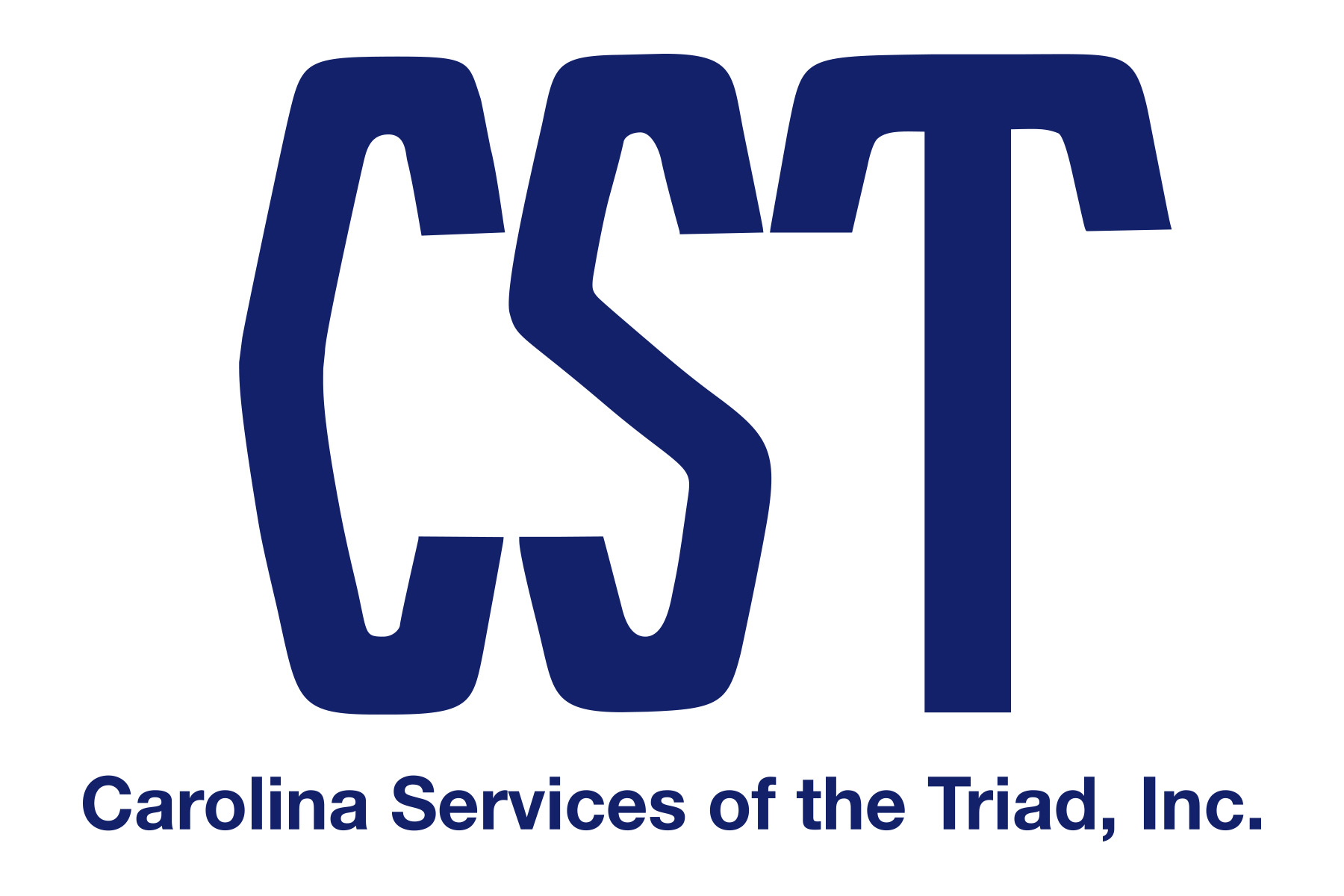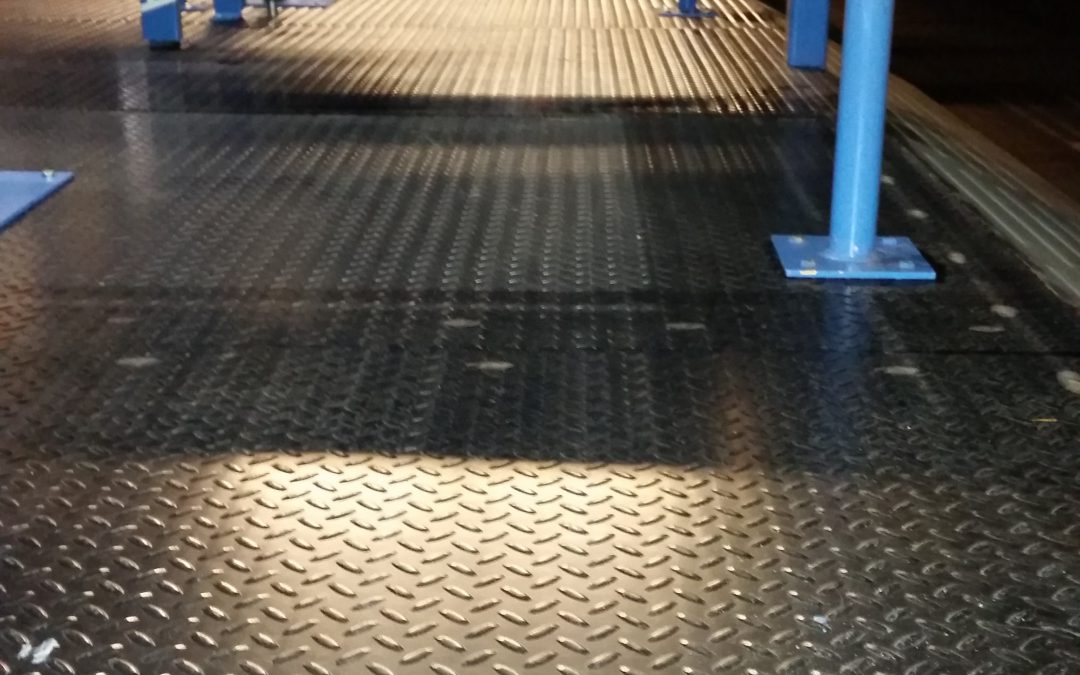Shipping companies and many other industrial facilities are struggling to keep up with the high demand for their services. Meeting deadlines and customer expectations while also complying with COVID-19 cleanliness protocols can fan the stress into a bonfire.
For employees on the warehouse floor, sanitization and safety are at the top of mind. How can I keep my work station clean? How do I know that the public spaces are going to be clean enough for me to use?
Keeping your industrial facility clean isn’t just a moral question; it is a financial one! Read on to learn more about how leveraging professional cleaning services will provide a serious return on investment for your business.
5 Huge Problems Your Industrial Facility Could Face Without Proper Cleaning
Even without the added pressure of COVID-19 legislation and protocols, your industrial facility could face huge problems if it isn’t cleaned properly.
While it may be tempting to cut corners, a professional, top-notch janitorial service like Carolina Services of the Triad is going to save you time and money in the long run.
Here are five big problems that will be knocking on your door if you don’t invest in proper cleaning:
1. Employee Safety Issues
Depending on the product you manufacture, if you don’t clean properly, your employees could get injured on the job. Just a little dust or splatter can make walkways and climbing surfaces extremely hazardous.
The accumulation of debris can also be a problem, since employees could trip and fall. Paying for janitorial services upfront is a lot cheaper than paying for a lawsuit, and keep in mind that your insurance might not cover you if it’s found that you were negligent in keeping areas clean for employees.
2. Employee Health Problems
Not only does a dirty industrial facility make it more likely that employees could be injured during work, it also means that their health could be affected. Dust and residue can, when it accumulates, cause respiratory problems for employees while at work.
This could lead to a number of issues including sick days and on-going health issues for the employee.
3. Lack of Efficiency
Even if your unclean industrial facility doesn’t cause illness or injury, it could still mean that work is less efficient. Employee morale goes down when working conditions aren’t sanitary, and you’ll probably face a high turnover, which means that you’ll spend a lot of time training new employees.
In addition, if employees have to walk around debris, constantly move items to get to other items they need, or otherwise deal with trash in their way, it will take them longer to complete every task.
4. Machinery Malfunction
When your industrial facility is dirty, it has a negative impact on your machinery. Without proper care, you’re severely shortening the life of everything in your plant, including machines that cost tens of thousands of dollars to replace. You’ve heard the term “well-oiled machine,” right?
5. Regulatory Fines
Your industry is probably governed by a regulatory organization that has rules about the conditions of your industrial facility. You probably have at least an annual if not quarterly (or even more regular) inspection, and you might also face surprise, unannounced inspections.
Carolina Services of the Triad can keep your building clean and inspection ready so that you can avoid fines, tags, and other obstacles that might cause a temporary shutdown of production.

2 Major Ways Industrial Cleaning Saves You Money
An industrial facility is a very different working environment than an office space, and consequently has a larger array of considerations for keeping things clean. Where as in an office the primary concern may be keeping floors clean and surfaces disinfected, industrial facilities often work with heavy machinery and chemicals.
Safety protocols make this a safer environment, but even the most careful crew can encounter accidents or health hazards that can be detrimental to the facility’s operation. As with so many things, preventative measures are far simpler and cheaper than containing issues after the fact.
1. Detoxifying Surfaces For Safer Industrial Facilities
In plants where toxic chemicals are used in production, or when manufacturing those chemicals is the plant’s purpose, residue finds its way to surfaces. Railings, floors, and even operation consoles for machinery are prime spots this can be an issue.
Some of those facilities may require the use of hazmat suits to handle such substances, but even where toxic danger seems safe enough for plain clothes there can still be buildup.
Nitrogen oxide is a common side effect of welding equipment and diesel exhausts, and can affect eyes and mucous membranes of the body. Other common contaminants include ammonia, hydrogen sulfide, and sulfur dioxide — all inorganic gases stemming from window cleaners, acidic drain cleaners, combustion machines, and even blueprint equipment.
These gases also irritate eyes, but can also cause respiratory diseases in continuous exposures.
Soot, machine dust, vapors, oils, etc. can settle on tile floors, in grout, or even on metallic flooring. Every time it’s disturbed it can be swept back into the air and breathed by those around it. And it stays in the air more than many think.
The Occupational Safety & Health Administration (OSHA) website states that inadequate ventilation is the leading reason for poor air quality in working environments across the board (52%). Contamination from within the building, which also includes the aforementioned buildup, accounts for another 16%.
Keeping the surfaces and air as clean as possible reduces absenteeism as well as workers comp claims. Final settlements on workers comp cases can take 3-6 months for lesser injuries; longer for serious ones.
That’s a long time to be tied up dealing with that, costing the company time and money that could likely have been avoided.
Regular industrial cleaning services can alleviate this by removing this buildup from surfaces and floors, and even air vents themselves to improve circulation. Our cleaning solution is eco-friendly and does not use any harsh chemicals or allergens. It also will not add strong odors to the facility, which can be a distraction for workers.
The other advantage of a cleaning solution free of harsh chemicals is not having to worry about reactivity with any chemical substances used in the facility. It may seem unlikely or a strange thing to worry about, but cheaper cleaning products have all sorts of solvents in them that react to other chemicals. Sometimes these reactions are flammable or create toxic fumes. Just think of what happens when two common cleaners like bleach and ammonia are mixed together, for example.
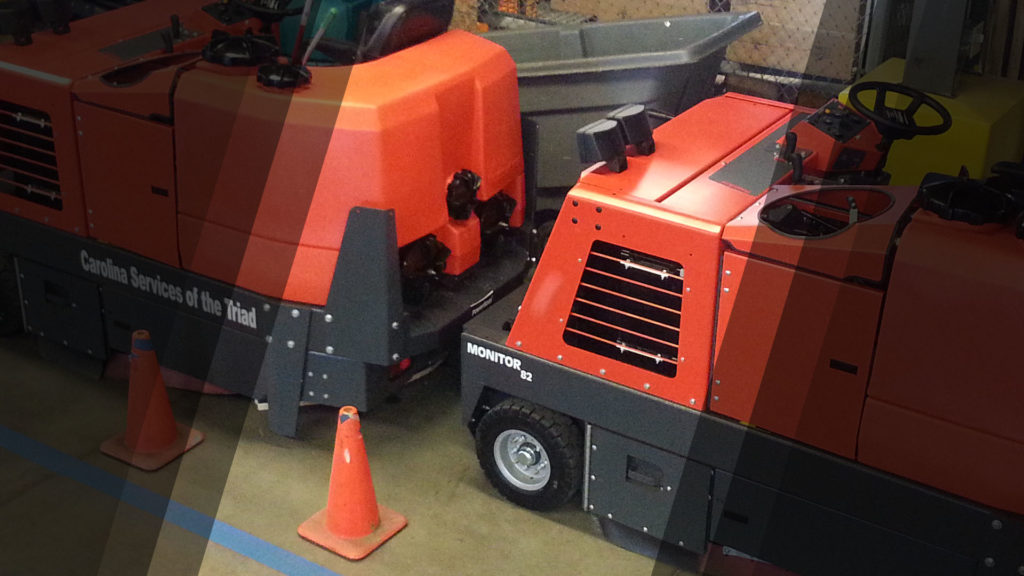
2. Avoiding Slips and Accidents
Even careful employees occasionally slip and fall. When people work with large machines that require focus to operate safely, environmental irritations to eyes, skin, and lungs can take away from that focus and invite danger.
It’s a serious consideration. In fact, OSHA estimates that slips, trips, and falls are the second leading cause of accidental death in the US (after car accidents). 15% of all accidental yet fatal injuries are attributed to this.
When you lump in non-fatal injuries, statistics as recent as 2014 indicate over 1.1 million cases in the workplace that year. The majority of that number is made up of falls, contact with objects, and exposure to harmful substances.
Sometimes a slip happens due to clumsiness or other innocent reason. But busy job sites have enough going on without adding to the likelihood — even unintentionally — of someone taking a tumble.
Spot cleaning is a given and definitely helps. But what every facility needs is a thorough cleaning with specialized equipment. Industrial cleaning ensures these surfaces are free of contaminants and slippery materials without placing any additional burden on your staff.
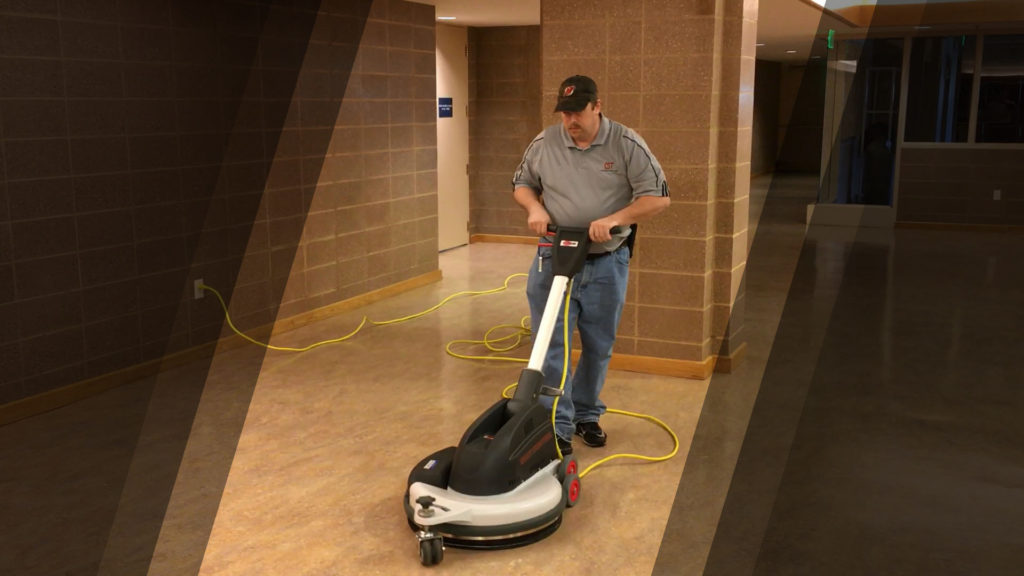
What Does Commercial Floor Cleaning Entail?
Floor cleaning is the cornerstone of a sharp-looking operation. Often times overlooked areas of the business go unnoticed for awhile, such as kitchens or break rooms — at least to the client. But floors are something everyone sees, and send a real message about how you see your business.
Companies we’ve worked with have reported that even when you sweep the main part of a hallway, the part everyone walks on, dirt and grime can build up along the sides and corners. It may not be as immediately noticeable as the area they swept, but it can raise some flags to customers.
Floor Waxing Basics
Waxing is an affordable way to protect floors from the wear they withstand each day. It’s similar to waxing your car. First you clean your car to make sure the surface is clean and has no dust or grit. Then, to get that nice shiny look, you apply the wax to seal it. The wax is temporary, but while it’s on there it protects your car’s paint from weather, people brushing up against it, and even harsh sunlight.
Floor waxing is similar. First, the floors are thoroughly cleaned so that none of the grit and grime is left. Since the wax forms a protective seal, you don’t want to essentially lock in grit. That will only make it tougher to clean afterward, and the wax won’t form as complete a seal on the floor.
After the wax is applied, the floors will look shinier and will resist stains and smudges. Dirt people track in on their shoes is easier to clean, and scuffs from heavy objects or moving things will be reduced.
Unfortunately floor wax is temporary like waxing your car. As people walk on the floor, and each time it’s mopped, some of the wax will wear off. Eventually this means that the floors will need to be stripped so that new wax can be applied.
Maintaining Waxed Floors
As we’ve talked about before, a thorough floor cleaning job involves stripping tile floors. This is a step people often skip, thinking that a quick mop job and slapping another coat of wax on the floor is good enough. The trouble is that dirt that was caught up in the previous wax coating, dirt that didn’t get mopped away, is now being locked in by the new layer of wax.
This can lead to uneven floors and additional scuffs in the tile.
In some cases, improperly cleaned floors can even cause slips. Given the costs of workers comp claims and other expenses we noted before, prevention is always the simpler route.
Over time and wear small ridges may form in the wax as some of it erodes away. Buffing or burnishing can more or less melt the wax back into an even coating, which prevents dirt from accumulating in those ridges and wearing the wax away faster.
Outsourcing your floor cleaning tasks allows you to:
- Focus on other areas of maintenance
- Enjoy a safer work area
- Sanitize floors
- Prolong the life of the floor materials
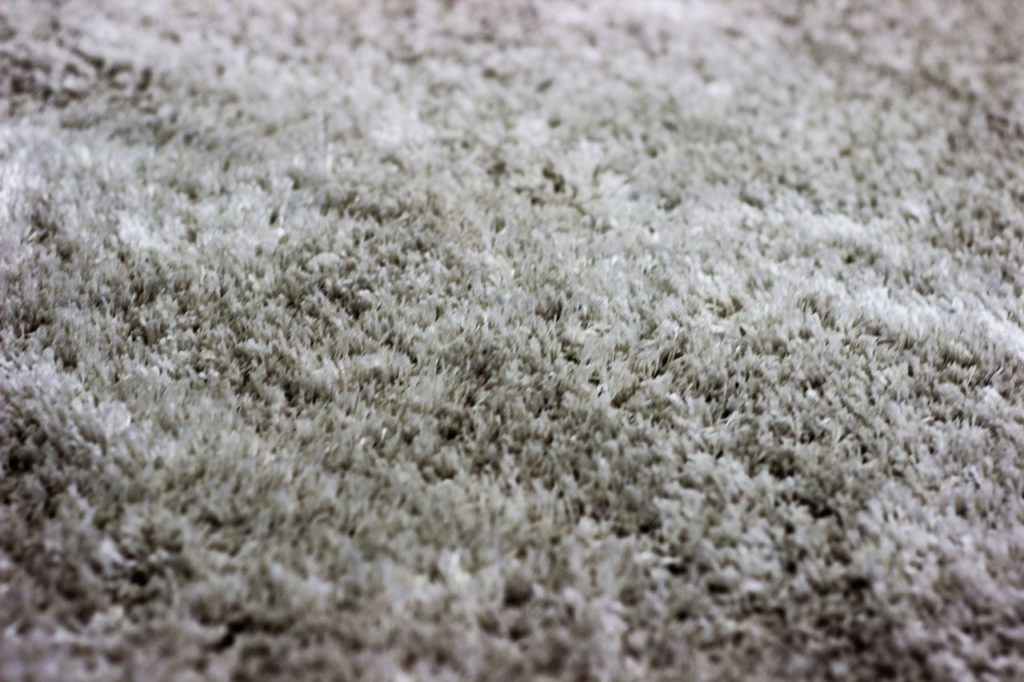
The Low Down on Carpet Cleaning
Most business owners probably think of commercial carpet cleaning as simply a necessary expense. They want their space to look good for clients and staff, but it’s seen as a maintenance task. It is, but there’s a real ROI in doing it as well.
The first and most direct reason is the longevity of your carpeting. Dirt and particle buildup actually damage carpet fibers as they set in (and as people continue to walk on them). Some contaminants rub against the fibers and weaken them. Others are acidic and actually wear away at the carpet. Regular vacuuming and carpet shampooing keep the fibers strong.
So commercial carpet cleaning allows us to get more years out of the carpet, right? But let’s face it: that’s a bigger boon than it seems at first. If you’ve ever had to tear old carpet out to re-carpet a space, you know how tedious and disruptive it is to empty all furniture, desks, and decor from the room. When it’s a business space, that means employees can’t be productive and you’ll feel like you’re playing Tetris while you try to find a place elsewhere for all those items.
Carpet Cleaning Helps Prevent Absenteeism
Staff suffering from illness and allergy symptoms takes a toll on the overall productivity of the business. The CDC estimates 80% of workplace illnesses are transmitted through personal contact, or by contact with common items everyone interacts with.
Germs, and especially allergens, love to hide out in carpet. Every time someone walks on the carpeting it stirs them up into the air. That same CDC report showed that proper cleaning can cut absenteeism in itself by 50%. That’s huge.
Not to mention the improved focus by eliminating allergens. Eye and nose irritants may not cause someone to call in sick, but trying to get work done with constant sneezing, runny nose, or itchy eyes is really distracting. That consistent break in focus leads to errors or simply inferior work, and the worst part is that it stems from something totally avoidable.
Surface cleaning is important, too, but keeping the floors and carpets clean is significant fort two reasons:
- Carpet fibers hold onto dust, dirt, and allergens more than smooth surfaces
- Who knows what anyone else has walked in prior to the carpet, so it’s picked up all sorts of bacteria.
Not to be gross, but it’s also worth noting that studies show that 93% of shoes have fecal matter to varying degrees on them. Knowing that’s being tracked around the office is neither good for the staff nor the carpet itself.
Using a regular commercial carpet cleaning service keeps your staff healthier, your production tighter, and allows you to get more years out of your carpeting.
So, in summary…
Cleaning services are a background task that, when done regularly and properly, keep the whole operation running smoother. A clean, safe workplace is good for morale, too.
Not that any business should neglect its cleaning, but industrial facilities simply can’t afford to skimp here. The sheer foot traffic, machinery, and other environmental factors put it in another league much like healthcare facilities where cleanliness is make or break.
Don’t leave that to chance and stagger your operation.
Call us today to take the stress out of keeping things clean in your industrial facility!
